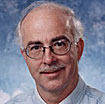Commentary on Psalm 148
In its songs of praise, Israel regularly invites an extraordinarily expansive congregation to praise God —
“all the earth” (Psalm 66:1; 96:1; 98:4; 100:1); “the peoples” and/or “nations” (Psalm 67:3-5; 96:7; 117:1); “the many coastlands” (Psalm 97:1); “heavenly beings” (Psalm 29:1; see 103:20-21). This remarkable inclusivity reaches its culmination in Psalm 150:6, the final verse of the Psalter: “Let everything that breathes praise the LORD!” Well, almost — actually, Psalm 148 issues an invitation to praise God that is even more expansive than Psalm 150:6. It invites not just “everything that breathes,” but rather everything that is to praise God!
Psalm 148 is well-positioned to be the most expansive of all the songs of praise. It is the central panel of a collection of songs of praise — Psalms 146-150 — that concludes the Psalter; and the collection is marked by the fact that each of these five psalms begins and ends with “Praise the LORD!” Between the initial “Praise the LORD!” that opens the psalm and the “Let them praise” of verse 5 that marks the concluding lines of the first section (see verse 13), there are seven grammatically identical invitations to praise. This is probably not coincidental, since the number seven represents wholeness or completion. That Psalm 148 invites praise from the whole creation is also suggested by the repetition of “all” (verses 2, 3, 7, 9-11, 14), as well as by the phrases “from the heavens” (verse 1) and “from the earth” (verse 7) that occur in the opening lines of each of the first two sections. “Heavens” and “earth” constitute the entirety of creation — that is, the whole universe, animate and inanimate, is invited to praise God.
Contemporary praise music is sometimes viewed as shallow and boring. To be sure, this assessment may not be entirely fair; but in any case, it is worth noting that there is absolutely no way that Israel’s praise music can be construed as boring. When one gathers a congregation that includes all peoples and nations, all creatures, and even more, there is bound to be some excitement!
In his assessment of verses 7-13, Erhard Gerstenberger hints at this excitement when he suggests that “the text is crowded.”1 In contrast to verses 1-6, verses 7-13 contain only one invitation to praise that is a grammatical imperative. The scarcity of verbs is compensated for by the expanded number of invitees in verses 7-13 — a total of twenty-three, and thus the “crowded” conditions that Gerstenberger notes. But the gathering of a universe-encompassing crowd seems to be precisely the poet’s point. That the crowd consists not only of various kinds of people (verses 11-12) but also of other creatures, plants, and features of creation (verses 7-10) virtually guarantees that this praise-service is going to be challenging and exciting.
After the incredible expansiveness of verses 1-13, verse 14 sounds strangely restrictive, mentioning “his people” and “his faithful ones… who are close to him.” Given verses. 1-13, it would seem that all peoples and all creatures “are close to him,” so what is going on in verse 14? Certainty is elusive, but the shape of the canon is the best clue.
Recall, for instance, the book of Genesis and its movement. The story appears to become significantly more restrictive with chapter 12; but the creation-wide dimension is still in view, since Abraham, Sarah, and their descendants are to effect a blessing for “all the families of the earth” (Genesis 12:3; see Psalm 67 for next week). Here, particularity is put in the service of universality; and here is a pertinent canonical clue for understanding the apparent tension in Psalm 148 between universality and particularity. In short, God’s particular people (verse 14) are called, in essence, to bless the whole creation. This suggests an interpretive direction for the ambiguous phrase, “praise for all his faithful” — that is, praise is not a privilege but the vocation of enabling the whole creation to praise God. As Terence Fretheim puts it, “God is enthroned not simply on the praises of Israel [see Psalm 22:3]; God is enthroned on the praise of his creatures.” Thus, Fretheim continues, Psalm 148 “contains an implicit call to human beings to relate to the natural orders in such a way that nature’s praise might show forth with greater clarity.”2
Psalm 148 suggests that God will not properly be praised until the congregation includes not only all people, but also all living things and the inanimate features of creation. Obviously, the ecological implications of this vision are profound and far-reaching. In the season of Easter, we might put it like this: Just as the resurrection offers the promise of life to us human beings that are beset by the forces of sin and death, so it also offers the promise of life to the “whole creation [that] has been groaning in labor pains until now” (Romans 8:22). From this Easter perspective, the redeemed resurrection-community consists of people together with the whole creation. Such an Easter perspective is not unlike the praise-perspective of Psalm 148. We — people, living creatures, and the features of the whole creation — form a single worshiping community!
If this be the case, we are called to claim our kinship with every living creature, for God’s sake. To be sure, we might want to claim such kinship simply as a matter of self-interest. As biologist E. O. Wilson points out, “So important are insects and other land-dwelling arthropods that if all were to disappear, humanity probably could not last more than a few months.”3 But beyond self-interest, we honor the creatures because they belong to God.
Psalm 148 might remind us that the first biblical covenant in Genesis 9 includes not only God and human beings, but also “every living creature” (Genesis 9:10, 12, 15-16) and “the earth” itself (Genesis 9:13). God apparently really does love the world, the whole world! And God invites us to love it too, for God’s sake, for creation’s sake, and for our own sake too. From the perspective of Psalm 148 (and the entire Bible), we human beings will not truly know who we are except in covenant community with God, with all peoples, with every living creature, and with the earth itself. Praise the Lord!
1 Erhard Gerstenberger Psalms Part 2 and Lamentations Forms of the Old Testament Literature 15 (Grand Rapids: Eerdmans 2001) 449.
2 Terence E. Fretheim “Nature’s Praise of God in the Psalms ” Ex Auditu 3 (1987):29.
3 Edward O. Wilson The Diversity of Life New Edition (New York: W. W. Norton and Co. 1999) 133.


May 2, 2010